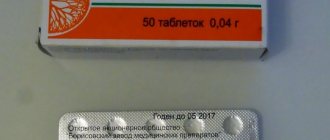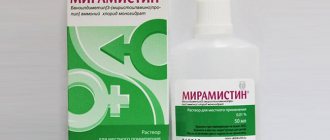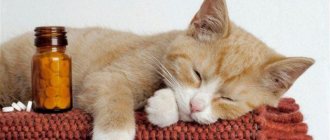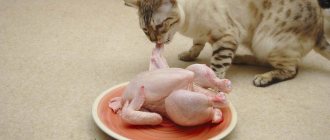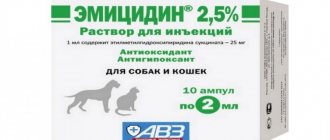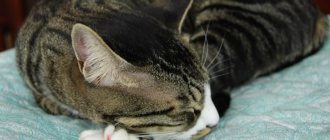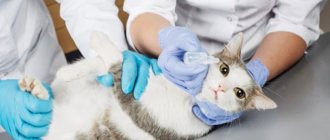Worms are a parasitic species of worms that live in the body of humans and animals. In cats, roundworms, tapeworms, nematodes or Toxocara are most often found. Worms affect internal organs, negatively affect the general condition of all systems, including the immune system, and cause physical pain to the cat. To combat helminths, tablets or suspensions are used. The latter is more suitable for kittens. But if the veterinarian chooses the right medicine, it can also be used to treat adult cats.
Indications for taking anthelmintic drugs
Worms poison the animal's body with toxic substances that are products of their vital activity. If there are a lot of parasites, then they may try to leave the body through all the openings available to them, including the eyes, mouth and ears. When helminths penetrate the oral cavity, the cat experiences difficulty breathing. If there are a lot of worms, the animal dies.
Worms
The indication for taking antihistamines is the presence of parasites in the stool, which is analyzed in a veterinary clinic. Signs of infection are as follows:
- apathy;
- lack of appetite, refusal to eat, including favorite foods;
- shortness of breath - the cat is suffocating;
- an increase in the size of the abdominal cavity, sometimes the stomach is swollen;
- the cat adopts an unusual position - the animal sits on its hind legs, raises its tail and tries to rub its anus on any hard surface.
The eyes of infected animals become red, watery, and the quality of their coat and overall appearance deteriorate.
Important! If a cat often goes outside where it comes into contact with other animals, the suspension is given to it at least once every 3 months.
In this case, there is no need to specially go with her to the veterinarian, since the drug is taken not for therapeutic, but for prophylactic purposes.
When to contact a veterinarian
In most cases, a person is able to independently help a cat and remove parasitic worms from it, but sometimes a veterinarian’s intervention in the treatment process is required.
Similar situations arise in the presence of the following factors:
- The symptoms of the presence of parasites are too pronounced, and the manifestation of diseases caused by their presence begins.
- The medications used do not help remove worms.
- Manifestation of an allergic reaction to the drugs used.
- A kitten has been diagnosed with worms.
How to give a cat a deworming suspension
Anti-worm suspensions for kittens and cats are sold in small bottles equipped with a dispenser. If there is none, then use a pipette or syringe without a needle. The form of medication administration is oral. Before administration, shake the bottle with the medicine, then:
- Take it in your hands and squeeze it in your fist for 2-3 minutes, warming it to room temperature.
- Place the cat on your lap, while constantly stroking it.;
- Open the animal's jaw and insert the sharp tip of the dispenser or syringe into the animal's mouth.
How to give a cat deworming tablet and how often to give it
The suspension should not spill out, so it is better to inject from the side, since this way the animal will be less likely to push the medicine out with its tongue.
How to give a cat a suspension
Important! The suspension is given in the morning. At the same time, it is better not to feed the cat in the evening. You can fill the bowl with food only 1-1.5 hours after the medicine is introduced into the animal’s body.
Prazitel
This suspension for cats can be used to treat worms in both adult pets and children. Prazitel costs 110 rubles per 15 ml and contains the antiparasitic substances praziquantel and pyrantel. They destroy pathogens of nematodes and cestodes:
- uncinarium;
- toxocara;
- wide tapeworms;
- whipworms;
- toxascaride;
- cucumber tapeworms;
- taeniids;
- hookworm.
The suspension has a light yellow, sometimes cream color and is packaged in dark bottles. A syringe is included in the package.
The suspension can be given to cats from the age of 3 weeks, 1 ml per kg of weight. Prazitel is indicated for pregnant women only in the last two periods of gestation. For the purposes of prevention and treatment, the drug is used once during the morning meal. There is no need to give a laxative after this; you can eat right away.
Repeated treatment of worms is required only in case of mass infestation, 10 days after taking the first dose. The prophylactic course is repeated after 90 days or 10 days before vaccination. Side effects are not described in the instructions for Prazitel, except for possible drooling and intolerance to the composition. Piperazine should not be given to cats for deworming at the same time.
Important!
Nursing cats can be given Prazitel anti-worm suspension only 21 days after lambing.
Anti-worm suspensions for cats
Popular anthelmintic suspensions
Choosing a good suspension is not difficult. Most products sold in veterinary pharmacies are suitable for cats of any age. But if you don’t know what to buy, it’s better to consult a veterinarian or choose one of the popular remedies recommended by a pharmacist.
Febtal Combo
Deworming remedy for kittens: what to do
The combined antihistamine drug Febtal Combo is often used to prevent worms in cats and kittens. The positive effect is achieved due to the presence of praziquantel and albendazole in the composition of the drug. Circulating along with the blood throughout the body, these substances have a negative effect on the central nervous system of the worms, paralyzing them and promoting rapid death with subsequent excretion.
Febtal combo
The drug should not be given to pregnant cats, as well as kittens under the age of 1 month, and a cat nursing them. The dose depends on weight. There is 1 ml of substance per 1 kg. The container with the drug is shaken for 2 minutes, after which it is collected into a pipette and administered to the animal (the cat is no longer fed at least 12 hours before).
Dironet Junior
The application is effective in the fight against worms of various types and forms. Its work is based on the presence of the following substances:
- pyrantel pamoate;
- praziquantel;
- ivermectin.
Important! Some animals develop an allergy to ivermectin, so you should not administer the medication yourself without first consulting a doctor. Dironet is sold in bottles filled with a yellowish suspension. Sometimes, when viewed in the light, separation of the drug inside the bottle is observed, but it disappears after shaking, and the liquid becomes homogeneous again.
The maximum concentration of Dironet in the blood is achieved 4 hours after its administration. Having completed its effect, the drug is completely excreted in the urine. It disrupts the metabolic processes in the body of the worms, causing them to become immobile, stop feeding and die. The amount of the drug per animal depends on its weight. So, if the average weight of a cat is 5 kg, then he needs to be given up to 5 ml of the substance.
Anti-worm suspension for cats is instilled onto the tip of the tongue in accordance with the instructions. If the cat resists, the medicine is mixed with a spoonful of cottage cheese or liquid cat food.
Dirofen 20
A drug containing pyrantel pamoate and praziquantel. Release form: a bottle containing a yellowish liquid of uniform consistency that does not separate or change color. There should also be no sediment at the bottom of the bottle. Dirofen affects the central nervous system of worms. They fall into a state close to a coma and die. Parasites are excreted along with feces. The product can be used at any stage of worm development and at any degree of damage to the body.
Important! If the cat has not been wormed for six months, then Dirofen is given twice. After 10-14 days, the drug is re-administered.
The maximum effect is achieved 2-3 hours after administration of the medicine. Dirofen is used not only for treatment, but also for prevention. Kittens can be given it when they reach 4 months. It is forbidden to give medicine to weakened animals, pets who have suffered from illness, pregnant or lactating cats.
Helminthal
The drug is available in the form of a suspension, bottled in small bottles of 1 ml. Active ingredients: 50 mg praziquantel and 250 mg pyrantel pamoate. The yellowish suspension can separate in the bottle, but the separation disappears after shaking.
Helminthal is given to kittens when they reach the age of 3 weeks. Adult cats should not take the drug during pregnancy or nursing. 1 ml of the substance is enough for antiparasitic treatment of a cat weighing up to 10 kg. The treatment is done twice, repeating after 10-14 days. The drug is dangerous to use in combination with drugs that contain piperazine.
Dirofen 20
This deworming suspension can be used in kittens as early as 3 weeks after birth. The composition contains praziquantel and pyrantel pamoate, complemented by pumpkin seed oil. Dirofen is packaged in a box with a dispenser and can be stored for up to 2 years if the bottle is sealed. The drug is a combination drug and causes the death of not only adults, but also worm larvae. It is effective against round and tape parasites.
Treatment of worms is prohibited in the initial period of gestation, within 3 weeks after birth, in case of allergies to the composition, as well as in sick and malnourished cats. To treat a kitten weighing 1 kg, you will need 1 ml of Dirofen 20 once. The suspension should be given in the morning during feeding; there is no need to “starve the cat” specifically before this; subsequent use of laxatives is not recommended. Repeated treatment, if necessary, is indicated no sooner. than in 10 days. The cost of Dirofen from NPO Api-San LLC is 155 rubles per 7 ml.
Dirofen anti-worm suspension for cats
Important!
In case of an accidental overdose of the suspension during the removal of helminths, the cat may develop diarrhea or vomiting, as well as develop a depressed state. In this case, the animal must be taken to a doctor for procedures to quickly remove the drug from the body.
Other forms of release of anthelmintics
Anthelmintic drugs are produced not only in the form of a suspension, but also in the form of:
- tablets;
- drops on the withers;
- pastes;
- injections for intramuscular or subcutaneous administration.
Stop cystitis for cats: tablets and suspension
Important! The tablets are effective against worms of various forms, they cope not only with adults, but also with larvae, and are eliminated after 10-12 hours.
Prazicide tablets
In general, the effectiveness of the product does not depend on the form. It is only related to the speed of absorption of the drug and the convenience of administering it to the cat. So, putting a few drops of deworming medicine on the withers is easier than forcing a cat to swallow a pill or endure an injection under the skin. Some drugs are available in two forms at the same time. For example, Prazicide can be purchased both in tablets and in the form of a suspension.
Review of products for kittens
Often, kittens become infected with worms, and their treatment must be approached with particular caution, taking into account all the nuances associated with a young and fragile organism. The safest medicinal preparations have been developed especially for small pets, which have a gentle effect on them.
Among the most popular and high-quality products are the following options:
- "Prasicide Suspension Plus" can be used from three weeks of age for oral administration. This drug can get rid of worms and cure most of the diseases that are caused by them, and in some cases it is prescribed as a prophylactic agent. Cost of a 5 ml bottle. is about 100 rubles.
- "Prasitel" comes in the form of tablets that were developed specifically for the treatment of kittens and puppies. The drug can affect virtually all types of parasitic worms, causing muscle paralysis in them. The cost of two tablets is about 40 rubles.
- "Dirofen" is available in various forms; it is recommended to use a special paste for treating kittens. The product is highly effective and safe due to its natural composition, which is based on pumpkin seed oil. It not only removes helminths, but also has a positive effect on the immune system and restores the condition of the intestines, which could be disturbed due to the activity of worms. The cost of one package is 150-170 rubles.
- "Dirofen Suspension 20" is a drug in liquid form, which is intended for single use by adding the substance to food during morning feeding. Can be used as a prophylactic to provide long-term protection for kittens against various types of worms. The cost is 150 rubles per bottle.
- "Dironet Spot-On" is a solution for external use; the substance is applied pointwise to the withers of the kitten. After treatment, it must be isolated from other animals for a period of 2-3 days to eliminate the risk that they will lick the drug from the treated wool and become poisoned. The kit includes three pipettes already filled with liquid, making the application process easier. The price is about 300 rubles.
- "Febtal-Combo" is an antiparasitic suspension designed specifically for removing worms from kittens. The drug is intended for oral administration; the main active ingredients are priziquantel and albendazole. The cost of one bottle, the volume of which is 7 ml, is 100 rubles.
- Prasid Complex is a unique set that includes three products designed specifically for kittens and can provide comprehensive protection against worms, lice and ticks. The cost of the kit is 180-200 rubles.
Possible side effects
Immediately after the cat consumes the suspension, it exhibits:
- increased salivation;
- foam comes from the mouth;
- Tears are rolling from my eyes.
In case of an overdose of a medicinal substance, the animal:
- becomes lethargic and drowsy;
- refuses food;
- tries to vomit food and taken medication.
The cat's temperature rises, redness appears on the skin, and stool becomes loose and frequent. The severity of side effects depends on the amount of the substance consumed. Pedigree cats experience the negative effects of antihistamines several times more often than ordinary domestic cats.
Helminthal
Important! Individual intolerance to individual components of the drug occurs more often. The treatment of such a cat should be trusted exclusively to a professional.
Rules for the use of anthelmintic drugs
The rules for using drugs intended to remove worms depend on the chosen form of the drug:
- Tablets and suspension are usually added to food; it is advisable to do this in the morning. If the kitten refuses to take food with medicine, then the medicine can be dropped into its mouth or placed on its tongue.
- Drops and other means for external treatment are applied to the fur; only the area between the shoulder blades is treated so that the animal cannot reach and lick the substance off.
Preventive measures
For preventive purposes, the cat is given an anti-worm suspension or an anthelmintic drug in any other form every 3 months. It is additionally important:
- Limit the cat's contact with yard animals: it is better not to let a pet living in an apartment go outside, since the owner will not notice that it is infected.
- Constantly check your pet for fleas, as these insects can carry helminth larvae.
Important! Fresh meat and fish are excluded from the cat's diet. They may contain eggs or larvae of worms. The products are placed in the freezer for 2-3 days or boiled before giving to the pet.
A cat that lives outdoors is often wormed; in addition, it must be examined at least once a month for insect infestation. It is better to purchase a special flea collar.
Anti-worm suspension for cats is an effective and safe remedy that is used for therapeutic and preventive purposes. This is an easy-to-administer form of the drug; most suspensions contain substances that do not cause any harm to the pet’s health and almost do not cause allergies.
Video
Why does infection occur?
Cats that walk outside are most susceptible to infection, but pets are not immune to many types of parasites.
Let's consider the ways in which helminths enter the body of a pet.
- There may be parasite larvae on the soles of outdoor shoes. By licking itself, a cat can swallow larvae along with the fur.
- When eating raw meat or fish. Some types of parasites do not die even when frozen, so heat treatment is required for at least 20 minutes.
- Young kittens can become infected from their mothers.
- Fleas or ticks are sometimes carriers of helminths.
Animals that go outside can additionally become infected through contact with a sick cat, through water from puddles or found pieces of food.
Symptoms of worms in a kitten
Having settled in the cat’s body, the parasites begin to feed at the expense of the animal. As a result, the body loses nutrients and vitamins, which can lead to severe exhaustion and intoxication. To avoid this, it is important to pay attention to the well-being and health status of your pet in a timely manner. Common symptoms that are typical for any type of infestation may include:
- decreased appetite or excessive eating;
- digestive disorders with signs of vomiting, diarrhea and flatulence. There may be blood or mucus in the stool;
- intestinal obstruction due to extensive infection;
- unnaturally swollen belly;
- tendency to eat inedible objects such as paper, small stones, lime, soil;
- signs caused by vitamin deficiency and chronic intoxication: depression, exhaustion, dull coat and shedding;
- developmental delay compared to healthy kittens of the same age.
In some cases, other signs may appear:
- slight cough or chest wheezing;
- yellowness of the mucous membranes, enlarged liver;
- increased body temperature;
- itching or hives;
- lacrimation, conjunctivitis.
During the growth period, the kitten’s immune system is weakened and the body’s resistance is reduced, so the symptoms of helminthic infestation can manifest themselves clearly. The owner is advised to pay attention to changes in the general condition of his pet. This will allow you to identify symptoms of infection with endoparasites and contact a veterinarian in time to avoid serious or irreversible consequences.
Anthelmintic drops on the withers
Drops on the withers should only be used by healthy, adult animals due to toxicity.
Lately, anti-worm drops on the withers have become increasingly popular. Such drugs relieve your pet of both internal and external parasites. They are excellent in combating all types of helminths, fleas and ticks, but are highly toxic. Although many pet owners prefer them. The drops are easy to use and do not need to be poured into the cat's mouth. It is enough just to drop a few drops into a place that is inaccessible to licking (between the shoulder blades, on the back, withers).
Profender. This is a targeted drug that destroys exclusively helminths (cestodes and nematodes). It contains two active components: praziquantel and emodepside. It is important to strictly adhere to the dosage, and the drops begin to act within 2 hours after application. Treatment is carried out once, and for the purpose of prevention - once a quarter.
Inspector . Broad-spectrum drops used to kill not only worms, but also fleas, lice, ear mites, etc. Contains fipronil (for fleas) and moxidetin (for worms). Sometimes a skin reaction may occur at the site of application. The drug can only be used in completely healthy, adult animals.
Prazicide complex. A complex drug that allows you to get rid of a huge number of external and internal parasites. The active ingredients are: praziquantel, diphenhydramine, levamisole and ivermectin. After treatment, the animal cannot be bathed for 24 hours. Individual allergic reactions may occur.
Kaniverm. Used for infection with nematodosis and cestodosis. Contains pyrantel, praziquantel and fenbendazole. Do not use for liver diseases or pregnancy. May cause negative reactions caused by the decomposition of dead worms inside the body. Requires strict adherence to dosage.
How often should a kitten be wormed?
Most often, taking the drug takes place in two stages:
- The first stage is taking the drug.
- The second stage is repeated administration to remove the remaining helminths and new ones that have hatched from the eggs during this time.
Repeated administration of the drug must be carried out 10-12 days after the first. But there are drugs that need to be taken again after a longer period.
In order to accurately determine the interval between doses, you must carefully read the instructions for use of the drug.
Prevention
In order to avoid having to remove worms, it is recommended to pay special attention to the following preventive measures to prevent their occurrence:
- Do not feed your cat raw meat or allow it to drink tap water that has not been boiled.
- Do not allow contact with other animals unless you are sure of their health and the absence of parasites.
- Promptly remove existing fleas , since parallel infection with worms often occurs.
- Do not let cats go outside for walks that have not undergone antiparasitic treatment to ensure protection, since helminth eggs are often found in sand and soil.
- Provide a balanced and complete daily diet when feeding your pet.
Treatment regimen
Let's look at the entire treatment regimen step by step:
- Give the medicine to the kitten.
- Make sure that after about 20-30 minutes he goes to the toilet. If this does not happen, it is necessary to give a laxative to prevent intoxication.
- Immediately after the kitten goes to the toilet, it is necessary to throw away waste products in a place inaccessible to it.
- It is advisable to stay at home all the time on the day of treatment to clean up after the kitten after each trip to the toilet.
- Check that the treatment is successful. Worms should be observed in the feces.
- After 10-12 days, repeat the procedure in the same order.
How to deworm a baby before vaccination?
The most important criterion is the choice of medicine specifically intended for kittens. Medicines for adult cats, dogs and even puppies can cause serious harm and cause severe intoxication of the body, even death.
At the moment there are a lot of such special drugs. The task is to choose the least harmful and toxic. At the same time, it must be able to quickly and permanently rid the body of helminths.
A striking example of such a drug on the market is Prazitel
.
There are two main active ingredients in this drug:
- Pyratel pamoate.
A component of the drug that perfectly fights worms, paralyzing them. It also helps to quickly remove helminths from the body (it is a laxative). Used to combat roundworms. - Praziquantel.
An anthelmintic that perfectly fights tapeworms, as well as all types of flukes.
There are other similar drugs on the market; the choice is up to the animal owner.
Precautions when treating cats
Pets get sick just like people. But treating them is much more difficult. Therefore, if you see that your cat is not behaving as usual, you should take it to see a doctor. After examining the animal, he will give recommendations on how to treat it. Sometimes even taking anthelmintic drugs can lead to a deterioration in the general condition of the pet.
If the dosage is incorrectly selected, cats may experience:
- Vomit
- Diarrhea
- Lethargy
- Refusal of food and games.
But the cause of the disease may also be the presence of toxins in the animal’s body. And only a drug selected in accordance with all the rules will give a positive result without harming the animal’s body. And only a specialist can make an accurate diagnosis.
The correct dosage is the key to your pet’s health
Before feeding even a doctor-prescribed medication to your cat, carefully study the recommendation and make sure that the drug is appropriate for your animal’s age.
You can repeat the procedure 2 weeks after the first dose. And as a preventive measure, experts recommend feeding the animal with medications every three months. By following all these recommendations, you will be able to rid your pet of parasites without causing harm to his health.
If the medicine is in the food and is silently eaten by the cat, there is no need to reward the animal. But if the cat was wrapped in a towel and forcibly treated, after the procedure the pet must be rewarded for its patience: stroked, scratched, praised, and given a tasty treat. Learn to give your cat tablets, practice by replacing them with pieces of dry food. This skill will definitely come in handy in the future. If you got a cat, learn the important aspects of caring for an animal.
THANK YOU FOR SHARING THIS ARTICLE ON SOCIAL NETWORKS
Fortunately, modern veterinary medicine has made great strides forward, therefore, most cat diseases are treatable and treatable, of course, if you contact a specialist in time and follow all his recommendations regarding taking the necessary medications. Depending on the pet’s diagnosis, its condition, age, body weight, and a number of associated factors, the veterinarian may prescribe tablets, powders, injections (find out here how to give injections to a cat), IVs, medications in the form of suspensions, suppositories... And , here I would like to once again draw the attention of cat owners to the fact that
Is there a difference between the drugs?
The difference between the drugs lies in the method of administration, composition and targeting against certain types of parasites. Sometimes funds are prescribed in a complex manner.
- pills;
- sugar cubes;
- suspensions;
- pasty products.
Drops are applied externally. Injections are given using injections.
According to the type of helminths against which the action is directed, all drugs are divided into:
- antitrematodes (flatworms);
- anticestodes (tape);
- anti-nematode (round).
Efficiency depends on what active components are included in the medicine and in what quantity. Medicines with a complex composition are more effective than single medications. The release form does not affect the effectiveness. The difference in forms is necessary for ease of administration of the drug and to ensure that the active substances enter the body as quickly as possible.
Features of taking suspensions
Anti-worm suspension for cats is given in the morning before meals. When taking some antiparasitic drugs, you may need to follow a diet for several days and use laxatives.
Before treatment with the drug, you need to consider some points:
- The pet must be healthy at the time of admission.
- If there are fleas, you need to treat them.
- If your cat is constipated during the first 24 hours after administration, a laxative should be given.
- Do not use antiparasitic medications for humans for the treatment of animals.
- If the cat has not swallowed all the medicine, it is prohibited to give it again.
During therapy, hygiene measures must be observed. The toilet must always be clean, it must be treated with disinfectants and scalded with boiling water. It is important to monitor nutrition; food should not be picked up from the floor. Feeding raw animal products during this period is prohibited.
Blanket-fixer for the obstinate
Very rarely does a pet meekly agree to swallow a bitter pill. As a rule, the slightest action by the owner to forcibly dispense medication is met with desperate resistance from the animal. In this case, a blanket comes to the rescue, which is used to secure particularly obstinate individuals.
You can secure the cat either in a blanket or in a thick large towel. To securely swaddle a naughty animal, you should start from the neck. The head is left outside. Swaddling begins by placing a towel under the cat's chin. Then the shoulders, forelimbs, the whole body and finally the hind legs are fixed. You should swaddle tightly, but do not squeeze the cat’s body to avoid injury. In such a cocoon, the obstinate pet will not be able to provide adequate resistance and will not inflict scratches on the owner.
Cat carrier bag
By securing the animal in a blanket, the problem of how to feed a pill to a cat disappears. The cocoon with the cat needs to be placed on your lap. The fingers of one hand should press on the border of the lower and upper jaw, this will cause the animal to open its mouth. With the other hand, place the pill on the root of the tongue. This must be done quickly and clearly. Then close the cat's mouth, holding it with your hand. The pet's head should be raised with its muzzle up, and the cat's throat should be stroked from top to bottom. As soon as the animal makes swallowing movements, the hand can be released.
In addition to using a blanket, when giving medications to obstinate pets, you can use another method of restraint. To do this, the assistant must take the animal by the withers. In this position, cats offer no resistance and are easily manipulated.
There is no need to worry if your cat starts drooling from its mouth after giving the medicine. Bitter pills, even when used correctly, manage to touch the taste buds on the tongue and cause salivation. After such manipulation, the animal is released from captivity and is always rewarded with affection and treats.
To learn how to independently give a cat medicine in the form of a tablet using an introducer and in its absence, watch this video:
Powder tablet
There are many ways and tricks to give medicine to a cat. One of them is to use for this purpose
syringe without needle. Almost any water-soluble tablet can be given in this way. To do this, the pill must be crushed into powder using a spoon and thoroughly dissolved in a small amount of water, milk or light sour cream.
The dissolved medicine should be drawn into a syringe. For these purposes, a 5 or 10 ml syringe is best suited. The contents, pressing evenly on the piston, are fed to the pet, placing the syringe along the toothless edge of the jaw. When giving the medicine, you need to make sure that the cat swallows the portion, and only then introduce the next one. When using this method, it is better to immobilize the animal with a blanket or towel.
This method can only be used for drugs that can be dissolved in water or milk. In order not to reduce the effectiveness of treatment, you should consult your doctor about the possibility of dissolving the tablet in liquids.
Applying a treat
Medicines used for the prevention and treatment of various pathologies have different properties. The fact is that some pills should be absorbed only in the intestines, bypassing the acidic environment of the stomach. Only then will they be effective and provide the necessary therapeutic effect. Such tablets are usually produced in the form of capsules. The outer layer of this form of medicine protects the main active ingredient from destruction in the stomach.
Before giving medication to a cat, the owner should consult a veterinarian about the possibility of mixing the drug with food. Many medications must be given on an empty stomach. You can also find out whether the tablet can be given with food in the instructions.
The tablet should be divided into 4 - 6 small portions and disguised in pieces of sausage, cheese or other cat's favorite food. If the drug does not lose its properties, then the tablet can be ground into powder and mixed with your pet’s favorite treat. Most often, this trick works for animals that are not picky about food.
To learn how to give a cat a tablet with food, watch this video:
With this method, it is important to ensure that the recommended dose of medication is consumed by the pet in one sitting. For this purpose, it is best to take the crushed pill with a small portion of food. It is most convenient to mix the medicine with minced meat.
The powdered tablet can be mixed with sour cream or tasty sauce. Then the product with the pill should be applied to the pet’s nose. The cat will have to lick off the treat along with the medicine. You should not apply the treat to the paw, as most often the cat shakes it off and the dose of the drug taken orally will be less than prescribed.
This method has one significant drawback - most tablets are bitter, especially antiparasitic drugs. And even a favorite treat does not interrupt the unpleasant taste for the cat. In addition, there are some individuals who are conservative in food, eating only dry food, for example. In this case, the trick of disguising the tablet as a sausage will not work.
Throughout the life of the animal, the owner will more than once have to face the problem of preventing and treating diseases with the help of pills. Therefore, how to give a cat a pill without resorting to the help of a veterinarian and taking into account its temperament, you will have to figure out on your own and try several options.
We recommend reading about how to give an intramuscular injection to a cat. You will learn about how to choose an injection syringe, prepare your pet for an injection, the rules of manipulation, and the speed of drug administration. Read more about how to train a cat to use a scratching post.
Causes of worm infection in kittens
For many owners, it is difficult to imagine that a small kitten, who is just beginning to explore the world around him, can be infected himself and be a carrier of worms. But this erroneous misconception is fraught with serious danger both for the feline itself and for all family members. Therefore, it is very important to know about possible routes of infection by endoparasites:
- intrauterine transmission of worms from a pregnant cat;
- contact with environmental objects, which may include water, infected animals (cats, mice, rats), grass in the yard;
- contact with contaminated (contaminated) objects, such as shoes, clothes, rugs in the hallway;
- feeding meat or fish products that have not passed veterinary control and have not been frozen or treated with boiling water;
- eating contaminated prepared food;
- the presence of fleas and lice eaters in the kitten, which are carriers of the larval form of the helminth;


